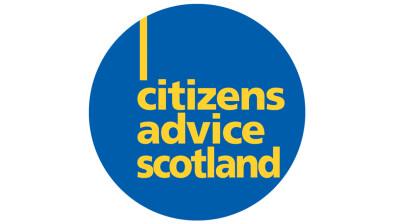Council tenants and singe person households ‘more likely to need cost-of-living help’

Citizens Advice Scotland (CAS) is warning that some people may be “left behind” in the policy response to the cost of living crisis.
The charity has published its latest cost-of-living analysis which considers the demographics more likely to be seeking cost-of-living-related advice, and how different advice needs intersect.
The research shows higher demand for cost-of-living advice than advice generally from single, working-age households and those in council-rented accommodation.
Council tenants make up 17% of all advice demand across the CAB network, however this rises in key cost of living areas, such as food insecurity where they make up 39% of demand and utilities where they make up 36% of demand. For council tax debt advice council tenants make up 34% of demand.
Meanwhile, single, non-pensioner households make up 20% of demand for CAB advice, but advice demand in key cost of living areas is higher such as 34% for utilities, 38% for food insecurity, 31% for risk to income and 35% for crisis support.
The report also sees a worrying link between energy advice and food insecurity, with 15% of those seeking help with food insecurity also needing help with utilities. The analysis also finds demand for consumer debt advice linked to priority debts like council tax, as well as with Universal Credit.
Across December CABs have been helping people with cost of living concerns, such as the following:
- A man sought help from a CAB in the North of Scotland having self-disconnected from electricity. He was not due a Universal Credit payment for another two weeks and was unable to top up his meter and had exhausted his discretionary credit from his energy supplier. The man received a food bank referral and a fuel bank referral.
- A single 40 year old man living in social housing sought help from a CAB in the east of Scotland with food, toiletries and fuel. The client receives Universal Credit and the standard daily living rate of Personal Independence Payment, but he been unable to stretch it sufficient and had borrowed money, which had also ran out. He was allocated to the Bureau’s welfare rights officer and a food parcel and fuel voucher arranged.
CAS social justice spokesperson David Hilferty said: “We have seen some strong policy responses to the cost of living crisis, but our analysis suggests the crisis is impacting different groups of people in different ways, and some people risk being left behind.
“What we see is people in council rented accommodation as well as those of working age and living alone are more likely to be seeking cost of living related advice – these are things like energy but also food insecurity, risk to income and crisis support.
“It is completely understandable that policymakers focus on responses that support vulnerable groups like families with children and pensioners, but there is a risk other groups are forgotten about and don’t get all the support they need.
“This report shows a worrying link between food insecurity advice and utilities advice, as well as demand for consumer debt advice growing in relation to Universal Credit and council tax debt. People in full time work are also more likely to see advice around consumer debt than they are general advice, suggesting people may be using credit cards and loans to cover essential spending, even if they are in work.
“People who are worried about money should seek advice from the CAB network. Our advice is free, confidential and impartial and crucially we are for everyone regardless of your circumstance. Whether you are working or not, whether you have kids or not, we don’t judge, we just help.”






